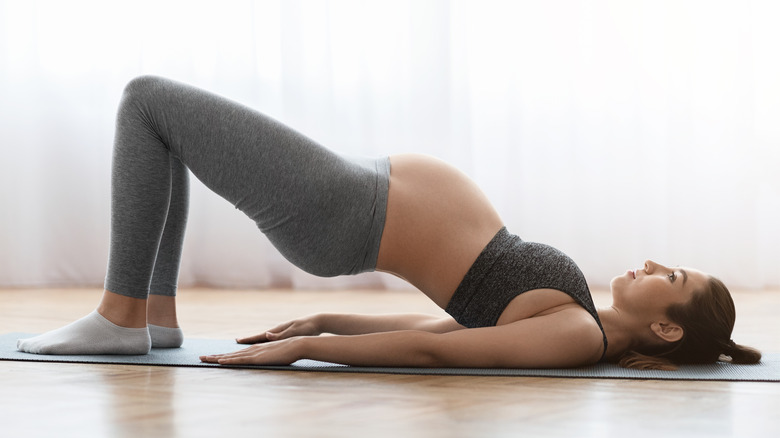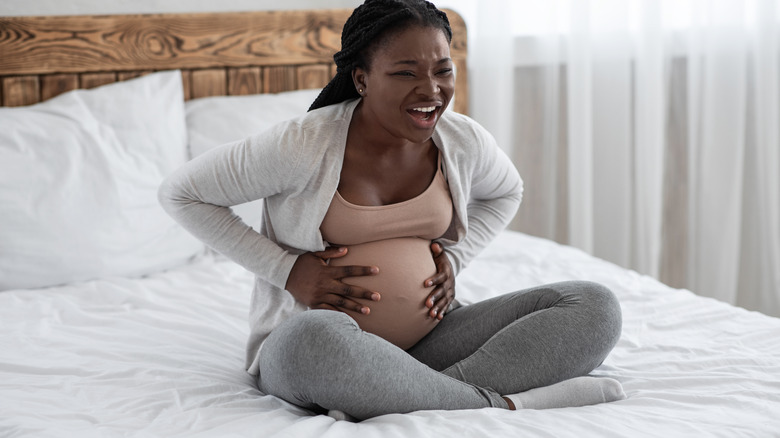Is Exercise During Pregnancy The Key To A Faster Labor?
Exercising during pregnancy is encouraged as long as the pregnancy in question is healthy and an OB/GYN signs off on exercise, as per the American College of Obstetricians and Gynecologists (ACOG). It's important for pregnant women to aim for 150 minutes a week of moderate-intensity aerobic activity that gets the heart pumping, but isn't so intense that you can't talk as usual. The way these 150 minutes get divided up per day is up to the individual and can depend on time available to exercise, preference, etc.
Although moderate-intensity exercise is generally safe during pregnancy, especially if the pregnant woman was physically active before getting pregnant, ACOG points out some important precautions to keep in mind. For starters, exercises should not include lying on your back or standing in the same rigid position for extended periods of time. You also shouldn't exercise in overly hot or humid weather but do stay hydrated throughout and after the workout. Finally, a decent sports bra and belly band can provide the proper support required during pregnancy.
Physical activity during pregnancy has many benefits for both the mother and the pregnancy itself, as per the Mayo Clinic. These include minimizing some of the more unpleasant symptoms of pregnancy, including bloating, swelling, and constipation, reducing the risk of developing gestational diabetes, aiding in a good night's rest, and preventing extreme weight gain. Exercising has one more surprising benefit — it can reduce the time you spend in labor. Here's what we know.
Exercising during pregnany minimizes time spent in all stages of labor
A 2018 study published in the European Journal of Obstetrics & Gynecology and Reproductive Biology (EJOG) found that pregnant women who exercised experienced a shorter overall labor time.
Researchers divided 508 pregnant women between a control group and an exercise group in the first trimester of their pregnancies. Those assigned to the exercise group carried out three weekly workouts until going into labor. The researchers then clocked the labor times of women in both groups and found that those in the exercise group not only had a shorter total duration of labor, but also a shorter duration of both the first and second stages of labor combined. In total, they had a shorter labor time of 57 minutes on average when compared to the control group.
Board-certified OBGYN, Dr. Amy French, spoke with Sharp Health News to explore the findings of the above study. While French noted that it is still unclear as to why exercise contributes to a shorter overall labor time, this is ultimately a positive thing for both the mother and baby. "With a shorter labor, there's less risk of chorioamnionitis, which is an inflammation of the fetal membranes that can impact mom and baby, as well as less risk of fetal distress that might lead to a cesarean delivery," she commented. Another perk to shorter labor is getting to meet your baby sooner, and who would say no to that?


